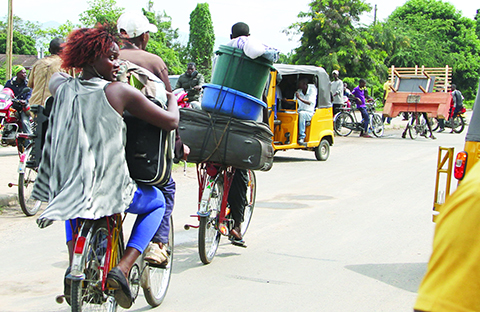WASHINGTON: Senior world officials reacted with deep alarm yesterday as Burundi's government threatened to unleash a new round of blood-letting in the Great Lakes region of Africa. President Pierre Nkurunziza's government has escalated its already strident rhetoric, warning of tough measures to stamp out resistance to his recent re-election. UN Secretary-General Ban Ki-moon voiced deep concern after a leading rights activist's son was found dead, the latest in a series of murders linked to the crisis.
The United Nations chief said the discovery of bodies-"many apparently summarily executed"-has become a "regular occurrence" in Burundi's capital Bujumbura. "The recurring violence and killings in Burundi must stop," he warned. There has been violence both from security forces and opposition gunmen. But Washington's top envoy to the region, Thomas Perriello, specifically condemned what he called the "inflammatory and dangerous government rhetoric."
This, he warned, indicated "the potential for wider-spread violence as early as this weekend." Perriello will travel to Burundi from Sunday through Wednesday, the State Department said. "He will communicate the US government's alarm at violence by government and non-government actors inside of Burundi, and the recent dangerous rhetoric by the Burundian government," the State Department said. "He will also call for all parties to exercise maximum restraint and to follow through on commitments to dialogue."
Perriello is also set to discuss the developments with regional leaders in Ethiopia, Rwanda and Uganda. In The Hague, the International Criminal Court warned it was ready to prosecute the instigators of any large-scale violence. Prosecutor Fatou Bensouda said if there is any conduct "whether by security forces, militias or any armed forces" that could "amount to war crimes, crimes against humanity or genocide, no one should doubt my resolve to fulfill my mandate so that the perpetrators do not go unpunished." Burundi has been engulfed in violence triggered by Nkurunziza's successful bid to rescind constitutional term limits and win a third term in office.
At least 200 people have died in the latest turmoil and 200,000 have fled the country, recalling some of the darkest periods of recent history in the region. Burundi itself was wracked by 13 years of conflict between Hutu rebels and the minority Tutsi that left 300,000 dead before a peace deal in 2006. And its northern neighbor Rwanda is sadly notorious for the 1994 genocide that left at least 800,000 dead. This week, independent watchdog the International Crisis Group warned that Burundi again faces the "possibility of mass atrocities and civil war." International alarm has grown over a five-day deadline that expires on Friday for Burundian civilians to hand over weapons or face a new regime crackdown.
'Do not come crying to us'
Last week, the country's Senate president Reverien Ndikuriyo threatened to "pulverize" regime opponents who do not lay down arms before Friday's deadline. "Today, the police shoot in the legs... but when the day comes that we tell them to go to 'work,' do not come crying to us," he said. The loaded term "work" was a euphemism used in Rwanda during the 1994 genocide to describe the mass killings of mainly Tutsi people by extremist Hutu militias.
Vice President Gaston Sindimwo echoed the warning with the simple threat: "Holiday time is over." Nkurunziza's opponents have denounced the "messages of hate and division" and opposition leader Jeremiah Minani has warned that "genocide is on its way." "Nobody is preparing a genocide," a senior police officer said. But he warned his officers would do "anything to defend the democracy for which we have shed our blood."
While the crisis is largely political, ethnic tensions are not far below the surface and opponents say Nkurunziza's re-election breached the terms of the Arusha peace deal that ended the civil war. The United States was critical of the decision to allow the president to stand for a third term, and Perriello returned to the theme as the deadline loomed. "We absolutely deplore any effort to incite violence or undermine regionally-mediated peace talks," he said. The UN Security Council will meet tomorrow to discuss the crisis, the French foreign ministry said, denouncing the wave of "hate speech" threatening the country.- AFP


